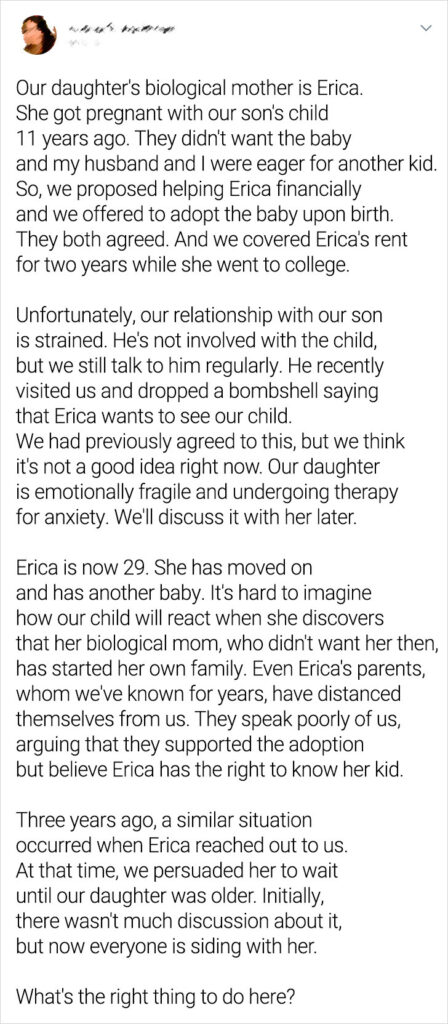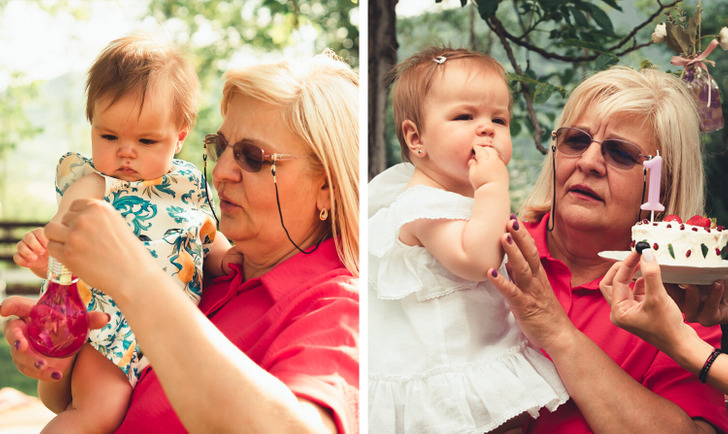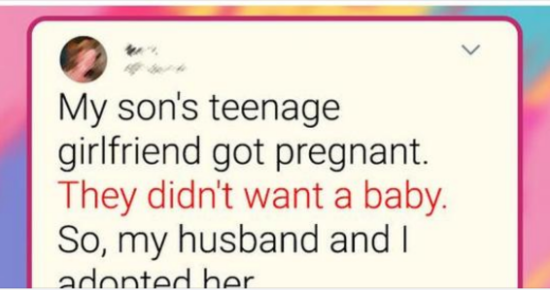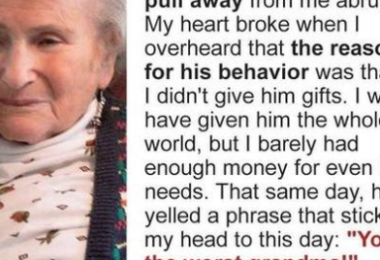Many grownups who had always wanted children of their own may now have them and provide them with loving families thanks to adoption. In today’s narrative, the main character and her spouse desired a second child, but the planned pregnancy never materialized. They were taken aback by an unexpected turn of events in life, which is how their granddaughter came to have them as guardians. They are now faced with a big family dilemma, though.

We studied this and would want to provide the most important advice given by experts in these circumstances:
- Talking to everyone concerned authoritatively is the first step. The objective is to reach a consensus that puts the child’s welfare first.
- Having said that, your son and Erica agreed to the adoption since they were both teens and unprepared for motherhood when Erica became pregnant. Since then, though, things have changed for them because they are now adults and can see things differently. It’s critical to comprehend their long-term goals, which go beyond merely “visiting” or “meeting” the child.
- We also understand that you are hesitant to tell your daughter about the adoption. We appreciate your wish to protect her, but since there are other people involved, it is imperative that you speak with her first. If she found out from someone else, there may be more serious repercussions, such as her developing animosity against you and her biological parents.
- particularly if we are unable to identify the precise reasons for your daughter’s present emotional difficulties, it is important to keep in mind that adopted children, particularly those who were adopted as newborns, may frequently endure emotional anguish associated with their separation from their original moms. Their first connection and attachment are formed throughout the nine months they spend in their mother’s womb. Emotional impressions from birth separation might last for a long time. The youngster would benefit much from your acknowledgment of this circumstance and encouragement of candid communication in managing their emotions at this time.

- Given that she is the biological child of your own son, your daughter may physically resemble you, but it may not be enough to prevent her from feeling suspicious and mentally doubting the scenario. She could become confused and ask a ton of questions due to things like the age gap between you and the other parents or remarks made by other kids or individuals in your network.
Experts recommend starting discussions about adoption with kids as early as age 5 or 6 to assist them understand and organically assimilate the notion. As questions come up, they should be answered honestly and with answers that are suitable for the child’s age. The following are some of the factors that make it necessary and advantageous for kids to know about their adoption situation:
- It is a fundamental right for children to know their life stories. Withholding this knowledge from children might rob them of important aspects of their identity, such as their race, social history, and genetic makeup.
A family that can be relied upon must be reliable and trustworthy for children. They may feel alone and ununderstood if members of their own family mislead them or withhold facts from them. - Taking a natural approach to the issue is essential to their emotional development. It allows individuals to feel empathy and love from those closest to them while also being able to understand and express their ideas and feelings.








Leave a Comment